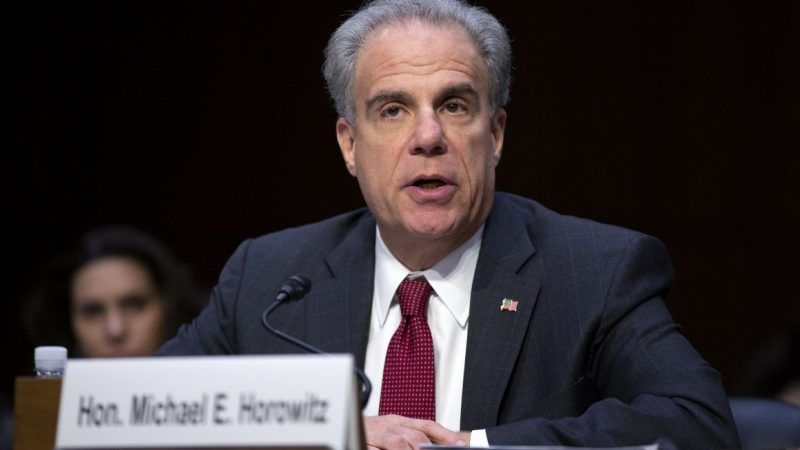The FISA Court Wants Answers About the Problems with FBI's Carter Page Warrants
Judge demands to know what the agency will do prevent future “omissions” in the applications.

Last week, the Office of the Inspector General for the Department of Justice found that the FBI omitted relevant information and made a number of mistakes on its warrants submitted to the Foreign Intelligence Surveillance Court (FISC) to wiretap a former aide to Donald Trump. Now the judges of the court are demanding some answers.
In an order filed today and signed by FISC Presiding Judge Rosemary M. Collyer, the court lays out a brief explanation about why it's so bad that the FBI left important details out of its warrant request as it sought a wiretap to get more information about Page's communications with Russian officials to determine whether Trump's presidential campaign had been somehow been compromised. In short, there are many rules to get permission to use FISC warrants to secretly snoop on Americans on American soil, and each of the 17 problems Inspector General Michael Horowitz found with the warrants represents a breakdown in the system at several points.
"When it is the FBI that seeks to conduct … surveillance, the Federal officer who makes the application is an FBI agent, who swears to the facts in the application," the report notes. "The FISC judge makes the required probably cause determination 'on the basis of the facts submitted by the applicant.'"
In short, the FISC has to trust that the FBI is including all relevant information in its warrant request and is not leaving out any important details that might factor into the decision. That's because FISC essentially serves as the only form of oversight over the FBI when it comes to secretly snooping on Americans. Its role is to make sure that the targeted Americans' rights are protected and that wiretaps aren't based solely on activities protected by the First Amendment (this is partly why the court was made) and to protect the Fourth Amendment rights of targets. The court depends on the "candor" (a term used several times in the order) of FBI officials in deciding whether to permit surveillance of Americans.
In Page's case, the report says, "The FBI's handling of the Carter Page applications, as portrayed in the OIG report, was antithetical to the heightened duty of candor described above."
The court is therefore ordering the federal government, by January 10, to provide a sworn written submission of what it has done and what it plans to do to make sure FBI warrant applications to FISC "accurately and completely reflects information possessed by the FBI that is material to any issue presented by the application."
The court is also ordering a declassification review of an order FISC put out on December 5 demanding more information about the FBI attorney who is accused of altering a document to conceal that Page had a previous relationship as a source with another federal agency regarding contacts with Russian officials. This would be very relevant to the court when considering a request to wiretap him over conversations with these very Russians.
Read the orders for yourself here.


Show Comments (164)